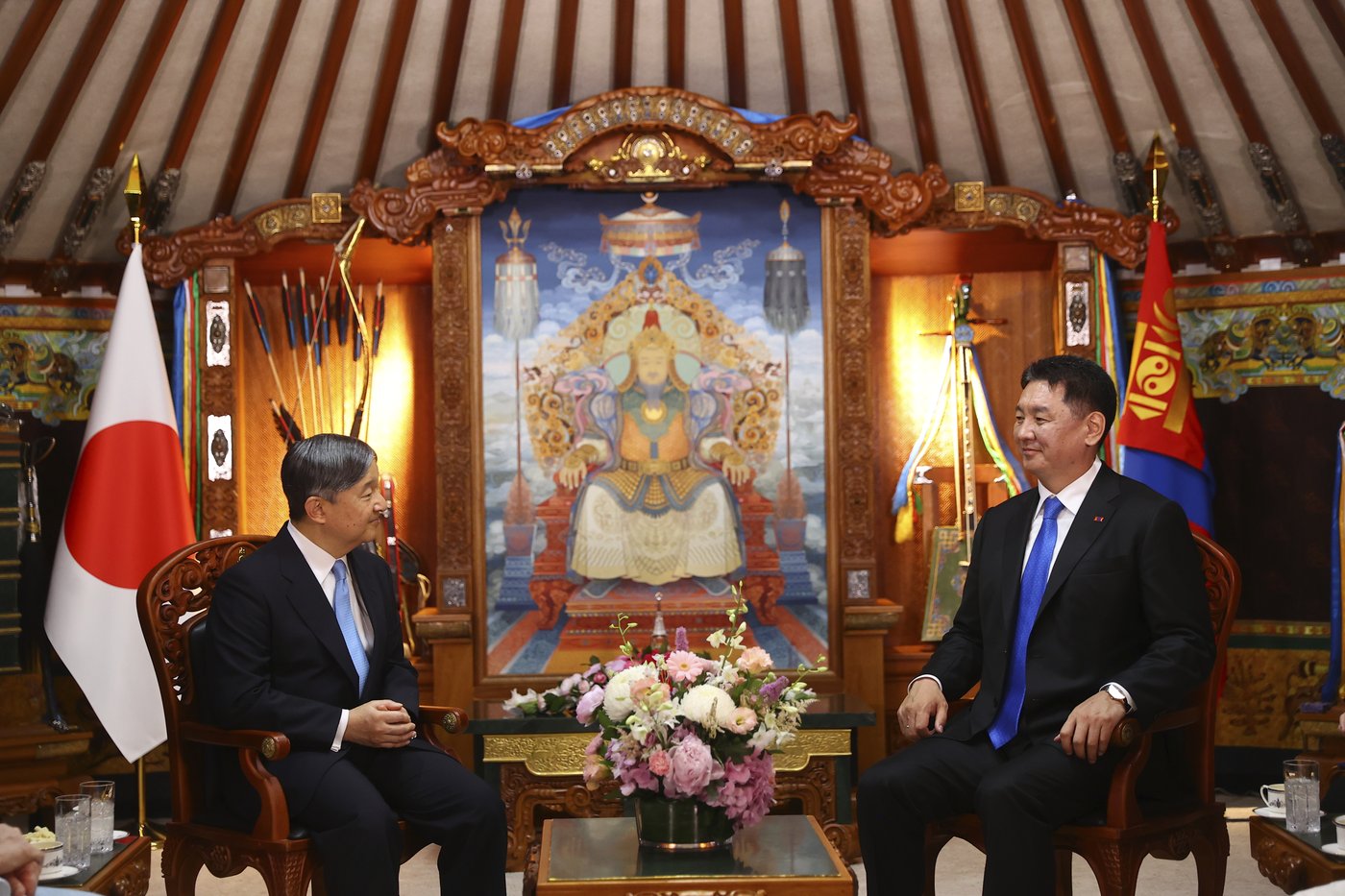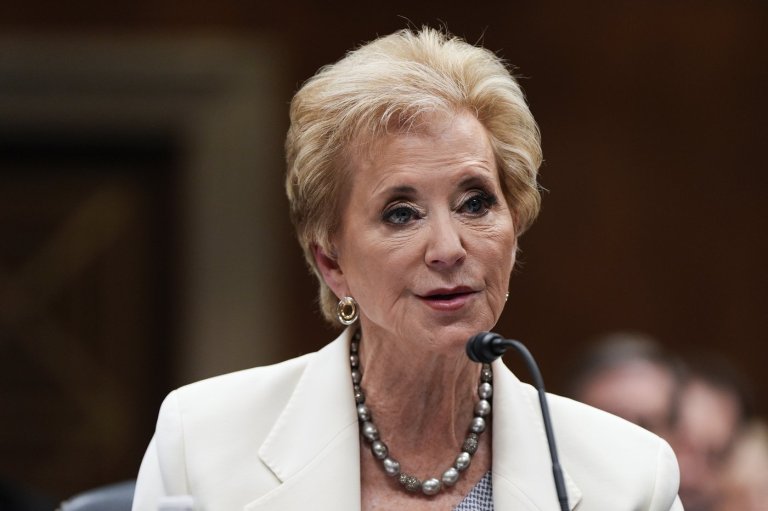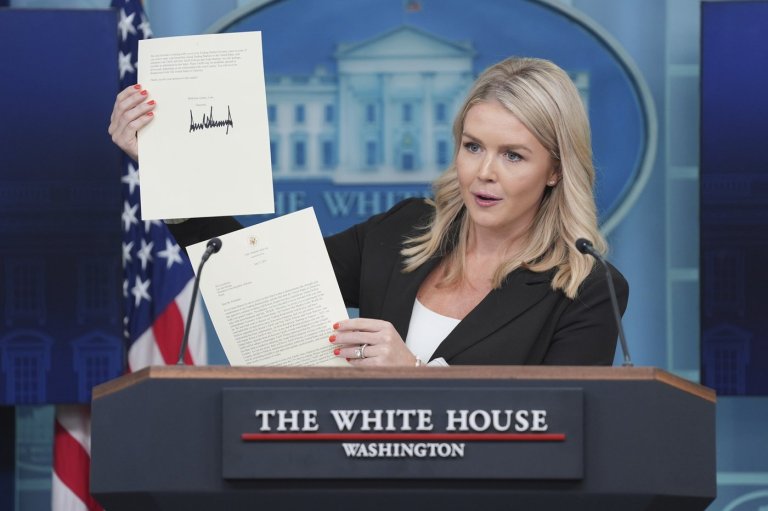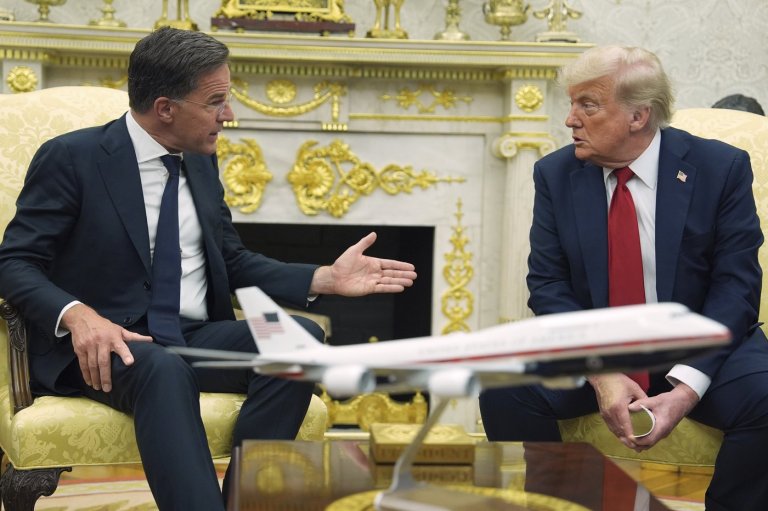
Japan’s emperor meets with Mongolian president to boost democratic ties in authoritarian region
TAIPEI, Taiwan (AP) — Japan’s Emperor Naruhito met with Mongolia’s president Tuesday during a visit to the landlocked Asian nation that marks a step toward closer relations between the democracies in a region dominated by Russia and China.
Naruhito met with President Ukhnaa Khurelsukh following a welcoming ceremony in the capital Ulaanbaatar on the second day of a weeklong visit. Japan has made a priority of boosting trade with the sprawling nation of 3.5 million, whose resources of coal, copper and other minerals are largely exported to China.
“President Khurelsukh emphasized that the state, government, and people of Mongolia deeply appreciate and are sincerely grateful for the unwavering and heartfelt support provided by the government and people of Japan in consolidating democracy, fostering sustainable social and economic development, and enhancing human resource capacity in Mongolia,” Mongolia’s official Montsame news agency reported.
Naruhito recalled with fondness his 2007 trip to Mongolia while still a crown prince and said he relished the chance to again “experience and closely engage with the beautiful nature, history, culture, and traditions of the country and its people,” Montsame reported.
In the afternoon, Naruhito and Empress Masako laid flowers at a cenotaph in honor of thousands of Japanese prisoners of World War II who were held under harsh conditions in the country. Naruhito’s visit marks the 80th anniversary of the end of the war.

One of the first battles of the war was a clash in the summer of 1939 between invading Japanese troops and Soviet forces on the Mongolian frontier in which the Japanese were badly defeated. Japan and the Soviet Union later signed a mutual non-aggression treaty that was abrogated by the Soviets, who poured troops into Mongolia and northern China.
In recent years, Naruhito has toured some of the places where the bloodiest battles and bombings of World War II occurred, including Iwo Jima, Okinawa and Hiroshima.
The emperor has said it’s part of his effort at atonement and remembrance of the tragedy of war fought in the name of his grandfather, Emperor Hirohito.
While the vast majority of Japanese prisoners of war were taken to Siberia, around 12,000 to 14,000 ended up in Mongolia, which by the war’s end was fighting alongside Russia against Japan. For decades after the war, Mongolia was virtually a Soviet-armed camp trained by China, with most of its people pursuing their traditional herding lifestyle.
Since throwing off Communist rule in 1989, Mongolia has built a resilient democracy, seeking to balance economic and political pressures from Beijing and Moscow with strong support from the U.S. and its allies in Asia, including Japan and South Korea.



Join the Conversation!
Want to share your thoughts, add context, or connect with others in your community? Create a free account to comment on stories, ask questions, and join meaningful discussions on our new site.












Leave a Reply
You must be logged in to post a comment.